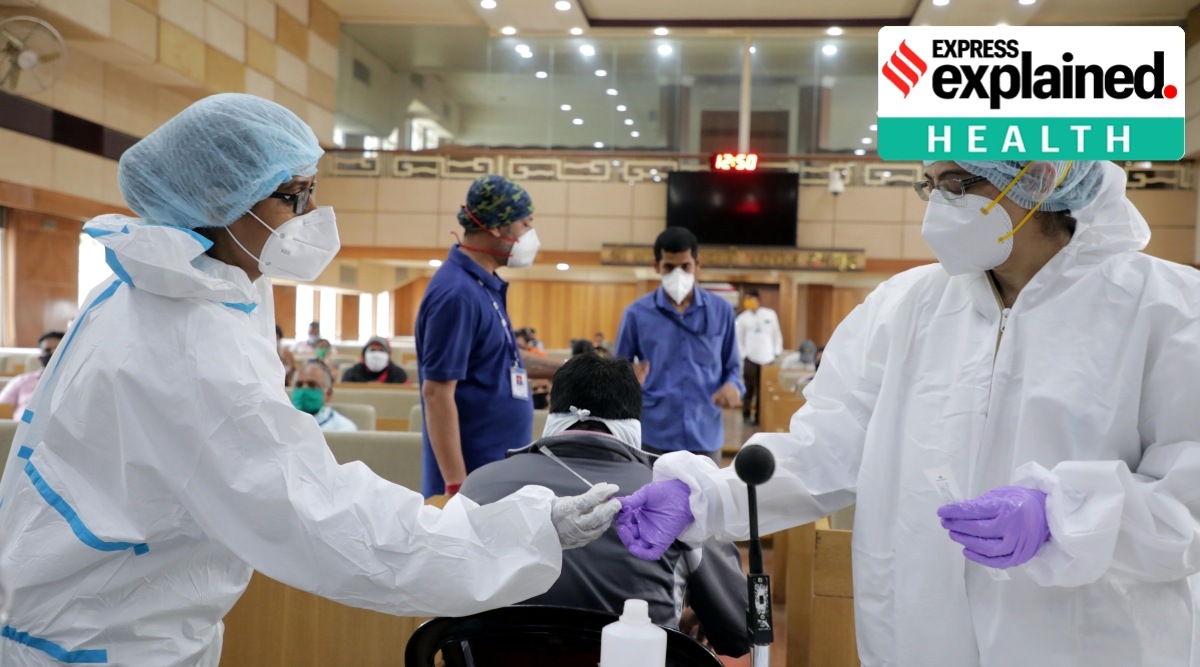The draft focuses on regulating medical devices as a separate entity, makes provision for fines and imprisonment for injury and death related to clinical trials or investigations, and seeks to regulate e-pharmacies. What else is new in the proposed draft Bill?

Online pharmacies
No provisions to regulate online pharmacies exist in the 1940 law or any of the Rules. “Online pharmacies are currently working completely outside the law. Most of these websites have perhaps a licence for a physical shop or storage unit. In case of a violation, drug inspectors do not know under which provision of the law or Rule they can proceed against the websites,” Sandeep Nangia, president of the Retail Distribution Chemist Alliance, and organising secretary of the All India Organisation of Chemists and Druggists (AIOCD) said.
“We need either a law or, more simply, a change in the current Rules to regulate e-pharmacies,” Nangia said. Also, he said, drug inspectors often find that the licences these websites hold are from another state, over which they have no jurisdiction.
“You can get any medicine you want from these websites without a prescription,” Nangia said. “Once you place an order, they have in-house doctors who just write a prescription to be uploaded to their database. If there is an audit, they can claim that they have a prescription for the medicines they have dispensed.”
J S Shinde, president of AIOCD, said that sometimes the websites don’t have any licences at all, and they instead tie up with pharmacies that do, making it even more difficult to take any action. The draft Bill states: “No person shall himself or by any other person on his behalf sell, or stock or exhibit or offer for sale, or distribute, any drug by online mode except under and in accordance with a licence or permission issued in such manner as may be prescribed.”
Story continues below this ad
It also states that the central government can formulate Rules to regulate aspects of the industry for which the old law has no provisions.
Clinical trials and investigations
The draft Bill makes provisions for compensation to participants or their legal heirs for injury or death suffered in clinical trials and investigations for drugs and medical devices. The draft also lays the onus of providing medical management for any injury arising due to the trial on the investigators.
There is a new provision for imprisonment, and fine amounting to double the compensation amount if the compensation is not paid. If the draft Bill becomes law, these provisions will be part of it, and will not be restricted to just clinical trial Rules.
Story continues below this ad
The draft Bill prohibits clinical trials or clinical investigations of drugs and medical devices without permission from the central licensing authority. While companies have to seek permission from the regulator to conduct trials even now, this is not specifically mentioned in the existing law.
The draft provides for debarring the investigators and sponsors of a trial or investigation if the laid-down provisions are not followed.
But this is not enough, and the draft Bill has some critical gaps, independent experts say.
“Even the clinical trial Rules have fines, but a few lakhs is not enough to deter a big pharma company. However, the provisions for imprisonment under the draft Bill might act as a deterrent. What the draft Bill completely misses is post-marketing surveillance, especially for medical devices, because implants can remain within a patient’s body for years. There should also be provisions for recalling medicines or devices if any issues are detected. The Bill has to be for the protection of the people,” Malini Aisola, co-convener of All India Drug Action Network, an independent collaboration of several non-government organisations working to increase access and improve the rational use of essential medicines, said.
Medical devices
Story continues below this ad
Under the ambit of medical devices defined by the draft Bill are diagnostic equipment, their software, implants, devices for assistance with disabilities, life support, instruments used for disinfection, and reagents or kits. The 1940 Act has medical devices as one of four categories of “drugs”.
To take decisions on regulating medical devices, the draft Bill provides for creating a Medical Devices Technical Advisory Board on the lines of the existing drugs technical advisory board, with people who have technical knowledge of the engineering of these devices, and members of the industry.
Other than officials of the Health Ministry, the board will have officials from the Department of Atomic Energy, Department of Science and Technology, Ministry of Electronics and Information Technology, Defence Research and Development Organisation, and experts from the fields of biomedical technology, biomaterials, and polymer technology.
However, drawing on the existing law on drugs, the draft Bill defines provisions for imprisonment or fines for “adulterated” or “spurious” medical devices. The draft states that a medical device will be considered to be adulterated if it is rusted, corroded, filthy, putrid, or decomposed, packed or stored in unsanitary conditions, contains harmful or toxic substances, or has any component or software removed making it unsafe.
Story continues below this ad
The draft Bill deems a medical device to be spurious if it carries the label of a fictitious company or is purported to be of a manufacturer that has not manufactured it.
Rajiv Nath, forum coordinator of the Association of Indian Medical Devices Industry (AiMeD) said: “These are engineering products, not homogeneous powders, tablets, or liquids that can be adulterated, so treating a rusted part of a medical device as adulterated and criminal offence is absurdity in the making. A law needs to be simple, reasonable, and implementable, and must not become a barrier to Make In India or Innovate in India.”








































